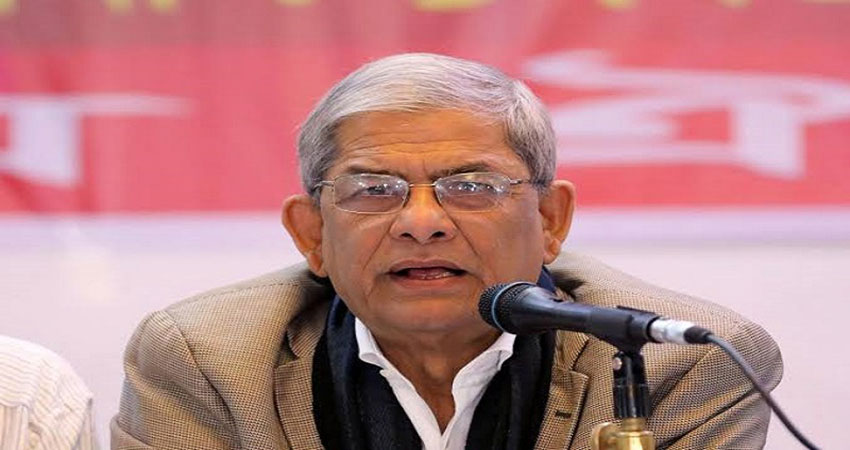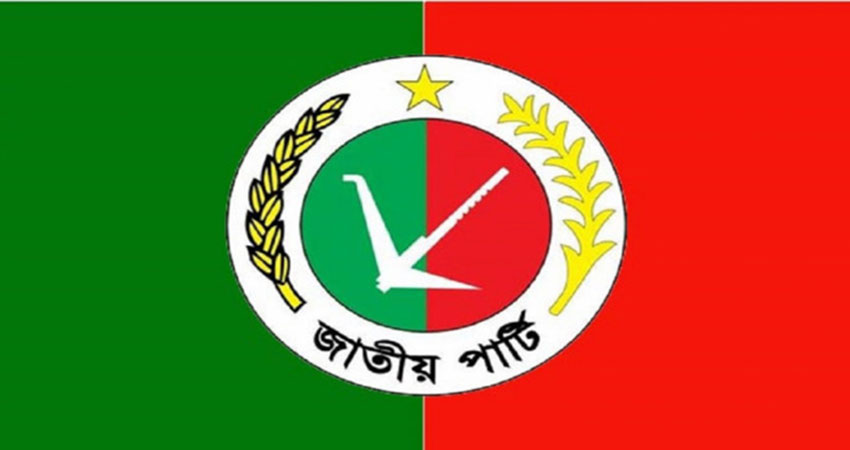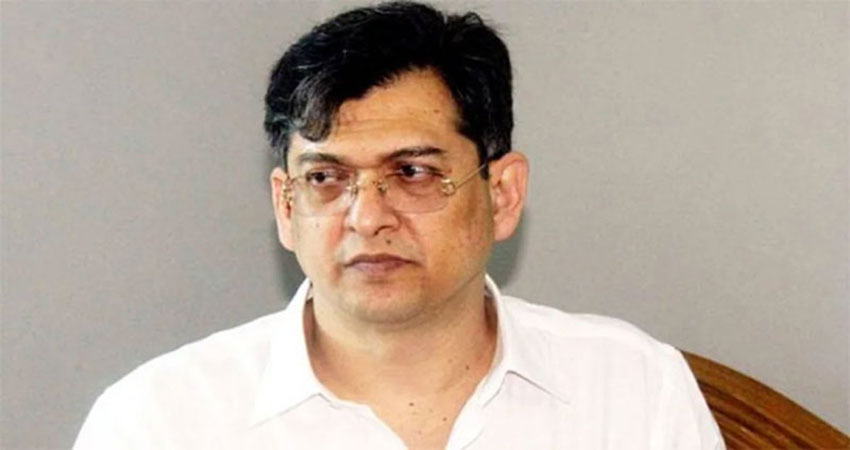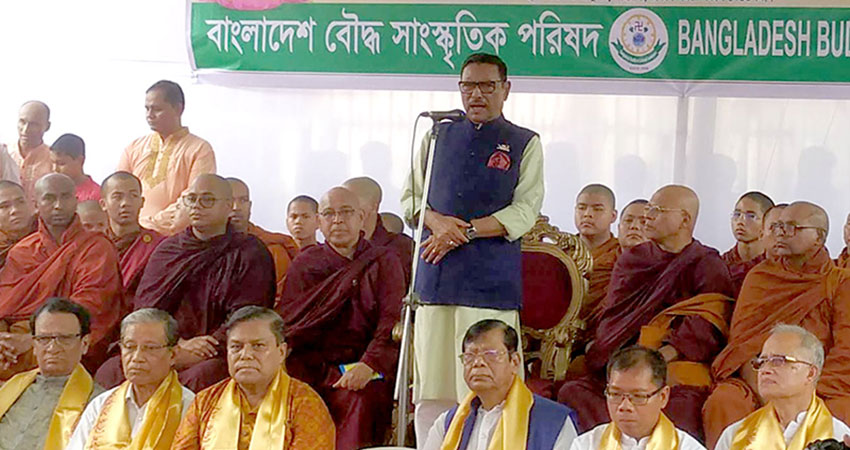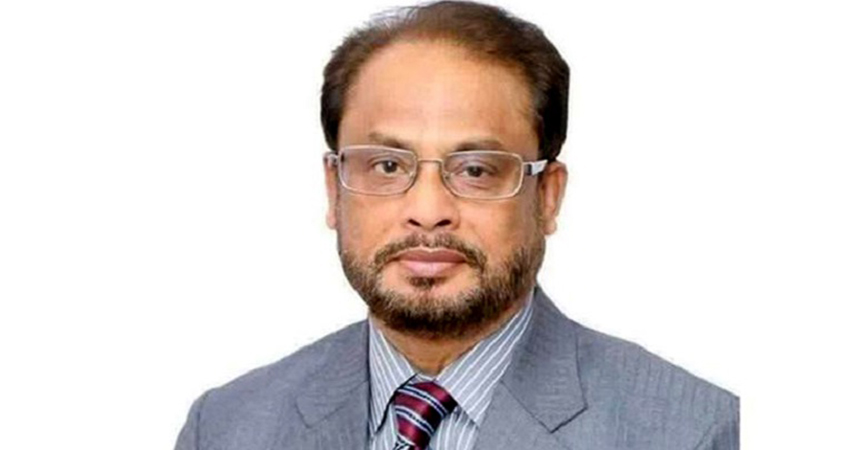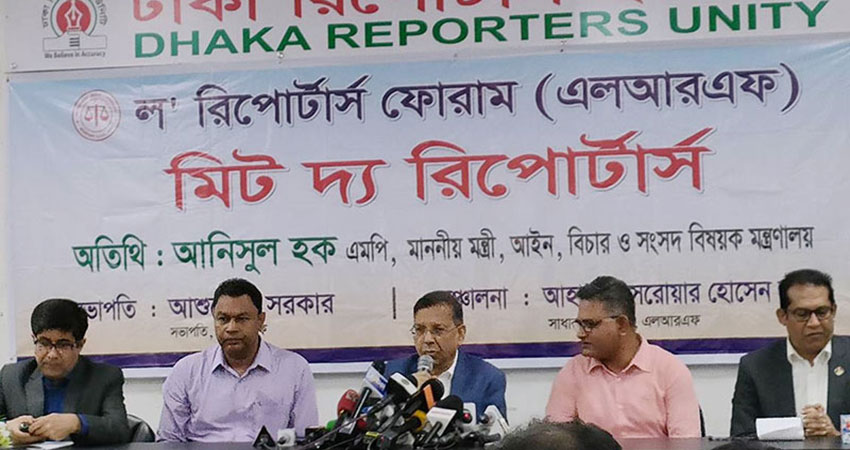The BNP has begun its four-day "mass walk" protest programme in Dhaka as part of its strategy of a "peaceful" anti-government movement.
Party leaders believe that this will help to organise the people against the government as well as narrow the scope for the government to frame BNP men in fake cases of vandalism.
The first of the road marches, organised by the party's Dhaka North unit, started from the Suvastu Valley point at Badda around 2pm on Saturday (28 January) and will end in front of Abul Hotel at Malibagh.
Secretary General Mirza Fakhrul Islam Alamgir is currently addressing the protest walk. Senior leaders of the party and its affiliated organisations have taken part in the programme.
Hundreds of BNP men have gathered in Badda and were seen chanting slogans with banners in hand.
A large number of law enforcers, with riot gear, have been deployed in the area to maintain law and order.
As per party announcement, the party's Dhaka South unit will walk from Jatrabari to Shyampur at 2pm on 30 January.
Also, leaders and activists of BNP will walk from Gabtoli to Mirpur 10 intersection on 31 January. Another road march will be held from Mugda to Malibagh on 1 February.
Is the BNP giving govt the upper hand?
After holding a series of divisional rallies in the last three months of 2022 that saw huge participation by its activists, the BNP has been carrying out rather softer anti-government programmes, including sit-ins, mass processions, and marches.
The 10 divisional rallies that the BNP organised in late-2022 mobilised its leaders and activists, but the movement has waned after 10 December following police attacks on party men in front of the BNP central office on 7 December and the subsequent arrests of the party's secretary general and senior leaders, observe political analysts.
Political analyst Dr Maruf Mallick told TBS, "BNP activists who were cheered up by the divisional rallies have calmed a bit as the BNP is announcing the same type of programmes again and again."
Looking at the recent programmes of the BNP, it seems that the party is showing some leniency in the movement, which is giving a little advantage to Awami League, and the ruling party is getting time to tackle everything including the anti-government movement, he added.
He also said that the BNP should now give the government an ultimatum of one and a half to two months to meet its demands. And if the demands are not met within the ultimatum, the party should announce a "March to Dhaka" programme, which can be a continuous programme centered on Dhaka.
He mentioned that in 1996, the Awami League protested against the then BNP government demanding a "caretaker government". Even in 2006, the Awami League waged a strong movement to press home various demands, including the appointment of the chief adviser to the caretaker government. During those times, the Awami League did not care much about taking permission from the BNP government to hold meetings and gatherings.
But currently, the BNP's political programmes have to be done with the permission of the government, and the venues and times of the programmes are also being determined by the police administration, which analysts think, is keeping the BNP in a disadvantageous position both psychologically and in terms of on-field politics for creating a mass movement to bring down the government.
Echoing the same, political scientist Dilara Chowdhury said, "I think the government will not be bothered at all if political programmes are held in this way after taking permission from the government."
The BNP should strengthen its movement now, she said, adding that the people have support for the BNP's demands as the last two consecutive national elections were controversial.
The people of the country are now expecting stricter movement from the BNP, she concluded.
"Peaceful movement yielding better results"
In contrary to analysts' opinion, almost all senior leaders of the BNP including Secretary General Mirza Fakhrul Islam Alamgir, and standing committee members Khandaker Mosharraf Hossain, Mirza Abbas on various occasions, however, have expressed their conviction to carry out peaceful programmes against the government. And this strategy has proved to be more beneficial for the party, at least for the time being, said BNP leaders.
The BNP claims that about one and a half lakh cases were filed against its leaders and activists in the period between 2009 and 2022. Some 36 lakh BNP men have been accused in the cases and over 20,000 of them are now in jail. About 4,000 new cases were lodged against BNP men and 15 leaders and activists of the party were killed by police and ruling party men after the start of the BNP's continuous agitation programme in October last.
BNP leaders have said that during the BNP's protest programmes such as strikes and blockades in the past, activists of the ruling party orchestrated violence and framed BNP men in cases over those violent activities. But the government is not getting that opportunity this time around as the BNP's protest programmes are now peaceful.
On the other hand, domestic and foreign pressure on the government is growing, and public involvement in the non-violent movement programmes is also increasing.
BNP Standing Committee member Amir Khasru Mahmud Chowdhury told TBS, "This time our movement is getting a massive response from home and abroad. This is because our movement is for restoring voting rights, and human rights in the country, against extrajudicial killings, and to reduce the price of daily necessities."
Another standing committee member of the party, Iqbal Hasan Mahmud Tuku said, "We have never seen such an oppressive regime like the present one. There is no alternative to peaceful movement with people's involvement if we are to oust the current government."
He also said he firmly believes that a "mass movement" will be created against the government soon.
The BNP's International Affairs Secretary Barrister Rumeen Farhana told TBS, "This time the movement is a spontaneous manifestation of the people's grievance. The people of the country who were oppressed by the government in the past years in various forms including hikes in the prices of goods, the people have taken part in the movement spontaneously.
"Moreover, the fear that the government instilled in the people through forced disappearances, murders, and repression in the past years has withered away, thanks to the BNP's movement. The BNP will bring back democracy in the country by overthrowing the government through peaceful movement."













